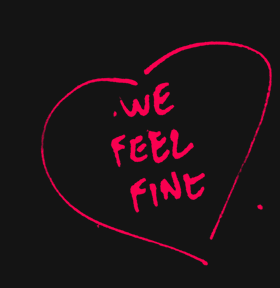We went to Lake Tahoe. It was beautiful, to say the least.
Shea found the water a bit chilly, so she rode on my shoulders...



 Those that are close to me know that one of my favorite web destinations is the TED site (especially since they started posting videos of the various presentations over a year ago). I think I originally learned about TED a few years ago via John Chandler's stellar blogging and have admired it ever since.
Those that are close to me know that one of my favorite web destinations is the TED site (especially since they started posting videos of the various presentations over a year ago). I think I originally learned about TED a few years ago via John Chandler's stellar blogging and have admired it ever since.Since August 2005, We Feel Fine has been harvesting human feelings from a large number of weblogs. Every few minutes, the system searches the world's newly posted blog entries for occurrences of the phrases "I feel" and "I am feeling". When it finds such a phrase, it records the full sentence, up to the period, and identifies the "feeling" expressed in that sentence (e.g. sad, happy, depressed, etc.).
Because blogs are structured in largely standard ways, the age, gender, and geographical location of the author can often be extracted and saved along with the sentence, as can the local weather conditions at the time the sentence was written. All of this information is saved. The result is a database of several million human feelings, increasing by 15,000 - 20,000 new feelings per day. Using a series of playful interfaces, the feelings can be searched and sorted across a number of demographic slices, offering responses to specific questions like: do Europeans feel sad more often than Americans? Do women feel fat more often than men? Does rainy weather affect how we feel?...
I am feeling a lot of tension when I think about how to follow the ways of Jesus in the American suburbs (but that's a subject for a separate post...).
After graduating from Emory University in Atlanta in 1992, top student and athlete Christopher McCandless abandoned his possessions, gave his entire $24,000 savings account to charity and hitchhiked to Alaska, where he went tolive in the wilderness. Four months later, he turned up dead. His diary, letters and two notes found at a remote campsite tell of his desperate effort to survive, apparently stranded by an injury and slowly starving. They also reflect the posturing of a confused young man, raised in affluent Annandale, Va., who self-consciously adopted a Tolstoyan renunciation of wealth and return to nature.
"I think in a societal, organic sense [a rite of passage] almost doesn’t exist anymore in terms of something that presents itself to you (whether you choose it or not) it’s something for your survival and it’s mandatory. That exists very seldomly, particularly in our culture here in the U.S. Increasingly, I think that men and women are recognizing that this is not a human luxury, but a human need: to test one’s self, to find one’s self, and most importantly to return to one’s self..."
South African singer-songwriter Vusi Mahlasela was a crucial artistic voice during the fight against apartheid, and now in the new modern-day nation. Blending traditional African music with soul and blues, his music showcases powerful vocals and poetic lyrics.